
The first and only approved CGRP nasal spray for acute migraine is expected to be available in pharmacies in July 2023.

The first and only approved CGRP nasal spray for acute migraine is expected to be available in pharmacies in July 2023.

Mind Moments®, a podcast from NeurologyLive®, brings you an exclusive interview with Eli Pollard. [LISTEN TIME: 31 minutes]

The associate professor of neurology at Columbia University and medical consultant and care center director for MDA offered his insight into the latest progress in ALS treatment and some of what will be discussed at the upcoming MDA Clinical & Scientific Conference.

The phase 2b trial investigating SciSparc’s SCI-110 for Tourette syndrome was recently granted approval to proceed by the Israeli Ministry of Health.

Expression of CD16 and activation markers in natural killer and natural killer-T cells may be responsible for the escalating autoimmune activity in NMOSD.

The senior vice president and chief scientific officer of the Parkinson’s Foundation discussed the potential for new therapies that target genetically mutated forms of Parkinson disease. [WATCH TIME: 3 minutes]

Treatment with a lower dose of CNM-Au8 resulted in significantly decreased risk of death, feeding tube placement, assisted ventilation, and all-cause hospitalization, among other survival outcomes.

Batoclimab, a fully human anti-FcRn monoclonal antibody, has demonstrated an ability to significantly alleviate patients’ symptoms and improve quality of life in myasthenia gravis.
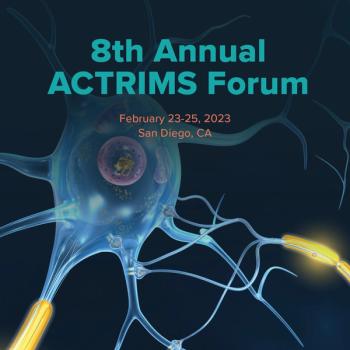
A group of experts in the care of patients with multiple sclerosis—Marisa McGinley, DO; Farrah Mateen, MD, PhD; Laura Piccio, MD, PhD; Robert Zivadinov, MD, PhD; and Bruce Cree, MD, PhD, MAS, FAAN—shared their perspectives on hot topics of treatment and management from the 2023 ACTRIMS Forum.

The international study on genetic testing and counseling, PD GENEration, is currently at the halfway mark of its goal of 15,000 participants.
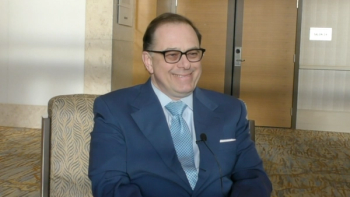
The clinical research director of the UCSF Multiple Sclerosis Center spoke about the barriers in accessing proven therapies for NMOSD at the 2023 ACTRIMS Forum. [WATCH TIME: 3 minutes]

Compared with healthy controls, those with isolated RBD performed significantly worse on all cognitive assessments except in tasks of executive function.
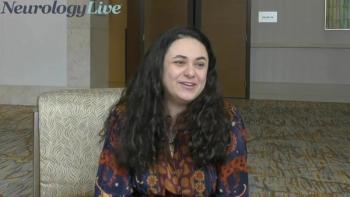
The associate director of the Multiple Sclerosis & Neuromyelitis Optica Unit at Massachusetts General Hospital discussed the ways employers and clinicians can alleviate work hardships experienced by patients with NMOSD. [WATCH TIME: 3 minutes]

The director of IT and Neuroinformatics Development at the Buffalo Neuroimaging Analysis Center provided perspective on the sudden explosion of artificial intelligence, and how it can be applied to MS care.

Rajiv Jain, PhD, post-doctoral associate, department of clinical neurosciences, University of Calgary, talked about his presentation on T-bet+ memory B-cells in multiple sclerosis at the 2023 ACTRIMS Forum.

Newly approved lab-based blood assessing traumatic brain injury rules out the need for CT scan and eliminates wait time at hospitals.

Efgartigimod resulted in rapid impact on health-related quality of life, with improvements that were consistent across multiple measures and were similar for the effect seen across 2 treatment cycles.
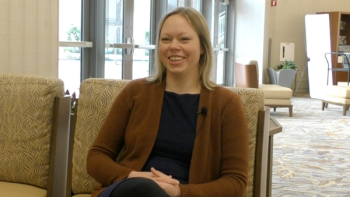
The clinical assistant professor of neurology at Jacobs School of Medicine and Biomedical Sciences, University at Buffalo, New York, talked about her presentation on Evusheld at the 2023 ACTRIMS Forum. [WATCH TIME: 5 minutes]

The effect of cognitive rehabilitation on personalized cognitive goals was specifically found 6 months after treatment completion, whereas the benefits on patient-reported cognitive complains did not persist.

Supplementary data from the phase 3 Clarity AD study served as the basis for the lecanemab’s new review, for which a decision is expected to come by July 6, 2023.

The senior vice president and chief scientific officer of the Parkinson’s Foundation detailed some of the potential reasons for the nearly 50% increase from the previously estimated rate. [WATCH TIME: 5 minutes]

Taylor Gonyou, DO, a multiple sclerosis fellow at Michigan Institute for Neurologic Disorders, detailed a proteomic biomarker panel that gauges multiple sclerosis disease activity, with potential to impact clinical decision-making.
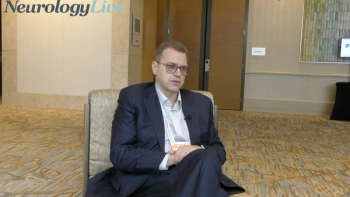
The director of the Buffalo Neuroimaging Analysis Center provide perspective on innovative ways to monitor progression in multiple sclerosis, and the importance of high-level care facilities. [WATCH TIME: 5 minutes]
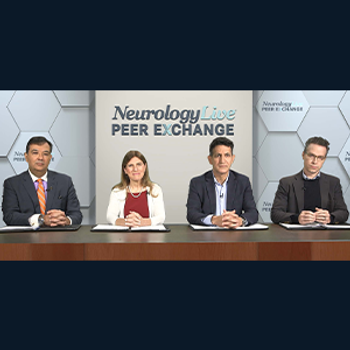
A panel discusses the latest progress in treatment, current diagnostic processes, and various therapies that have advanced through the pipeline.

Here's some of what is coming soon to NeurologyLive® this week.

Svetlana P. Eckert, MD, clinical assistant professor of neurology at University at Buffalo, talked about Evusheld as a preventive approach to COVID-19 infections in multiple sclerosis at the 2023 ACTRIMS Forum.

At the 2023 ACTRIMS Forum, the clinical research director of the UCSF Multiple Sclerosis Center talked about the implications for patients on B-cell depleting therapies infected with COVID-19. [WATCH TIME: 4 minutes]

Test your neurology knowledge with NeurologyLive®'s weekly quiz series, featuring questions on a variety of clinical and historical neurology topics. This week's topic is Alzheimer disease and dementia.

Nine of the 10 participants with NMOSD included in the case series have remained relapse-free after switching to satrlizumab from previous therapy.

With an anticipated life expectancy of 3 years from the time of symptom onset, an effective treatment strategy is essential in ALS—and recent therapeutic progress has built a foundation of hope for the community.